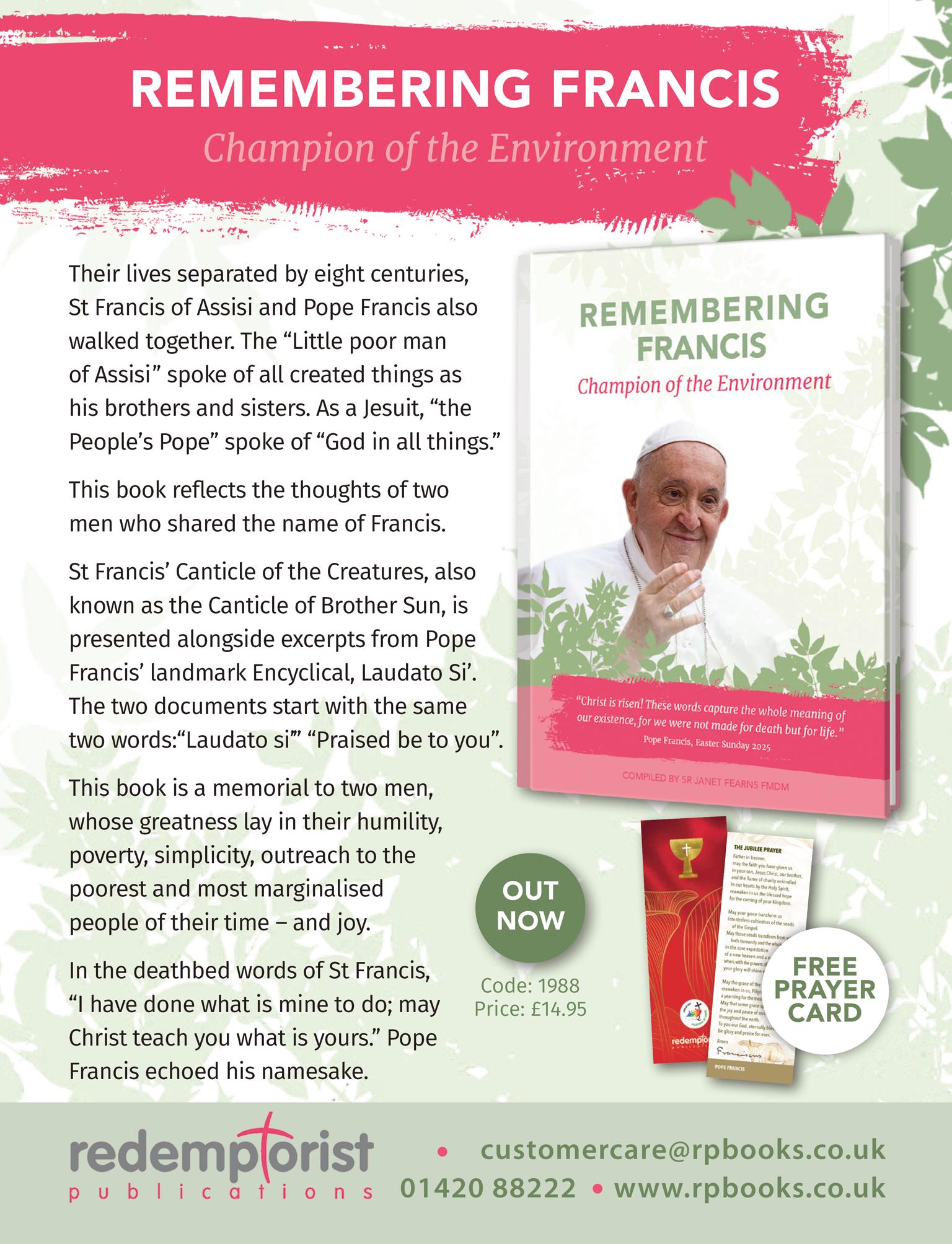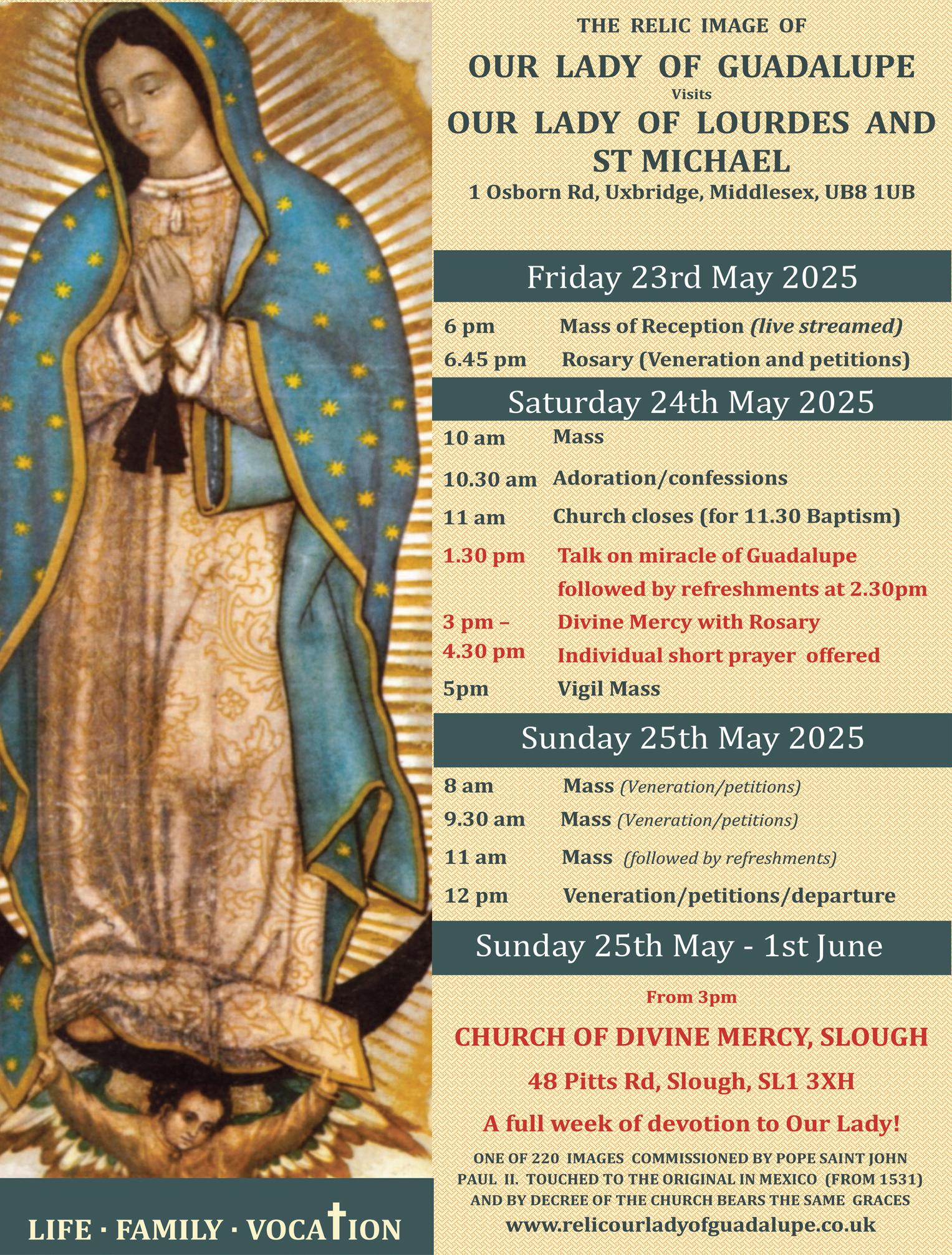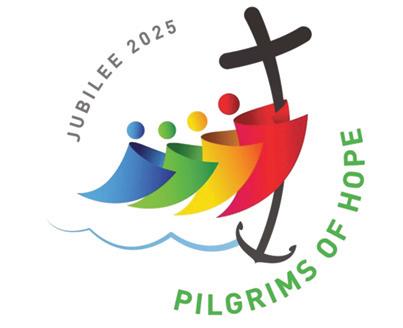

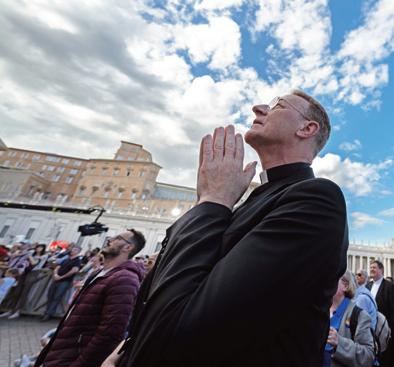
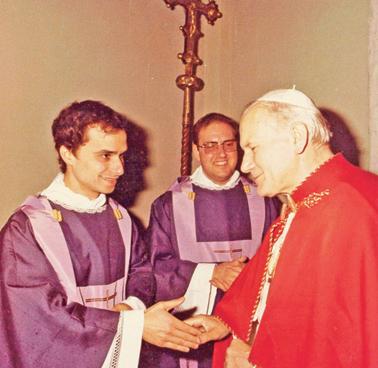
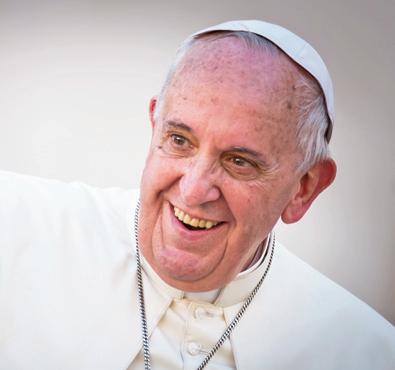
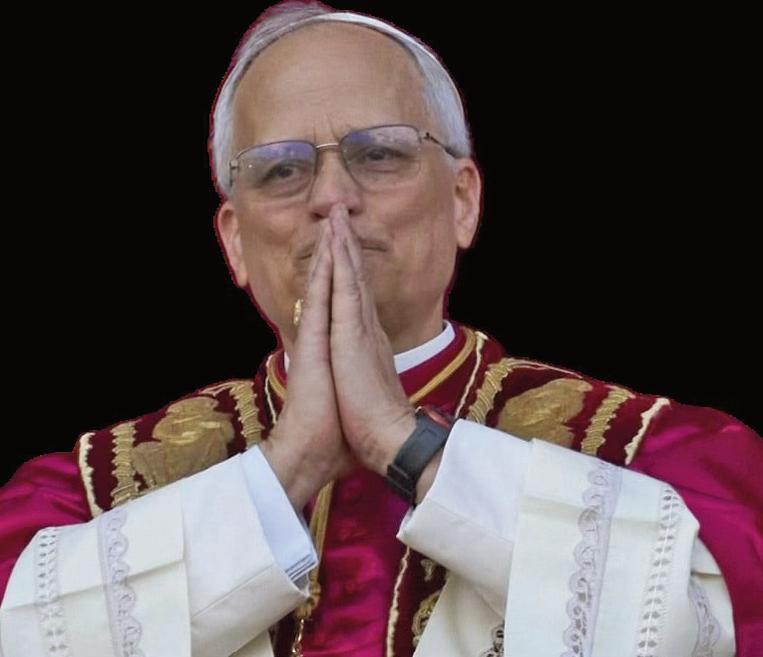

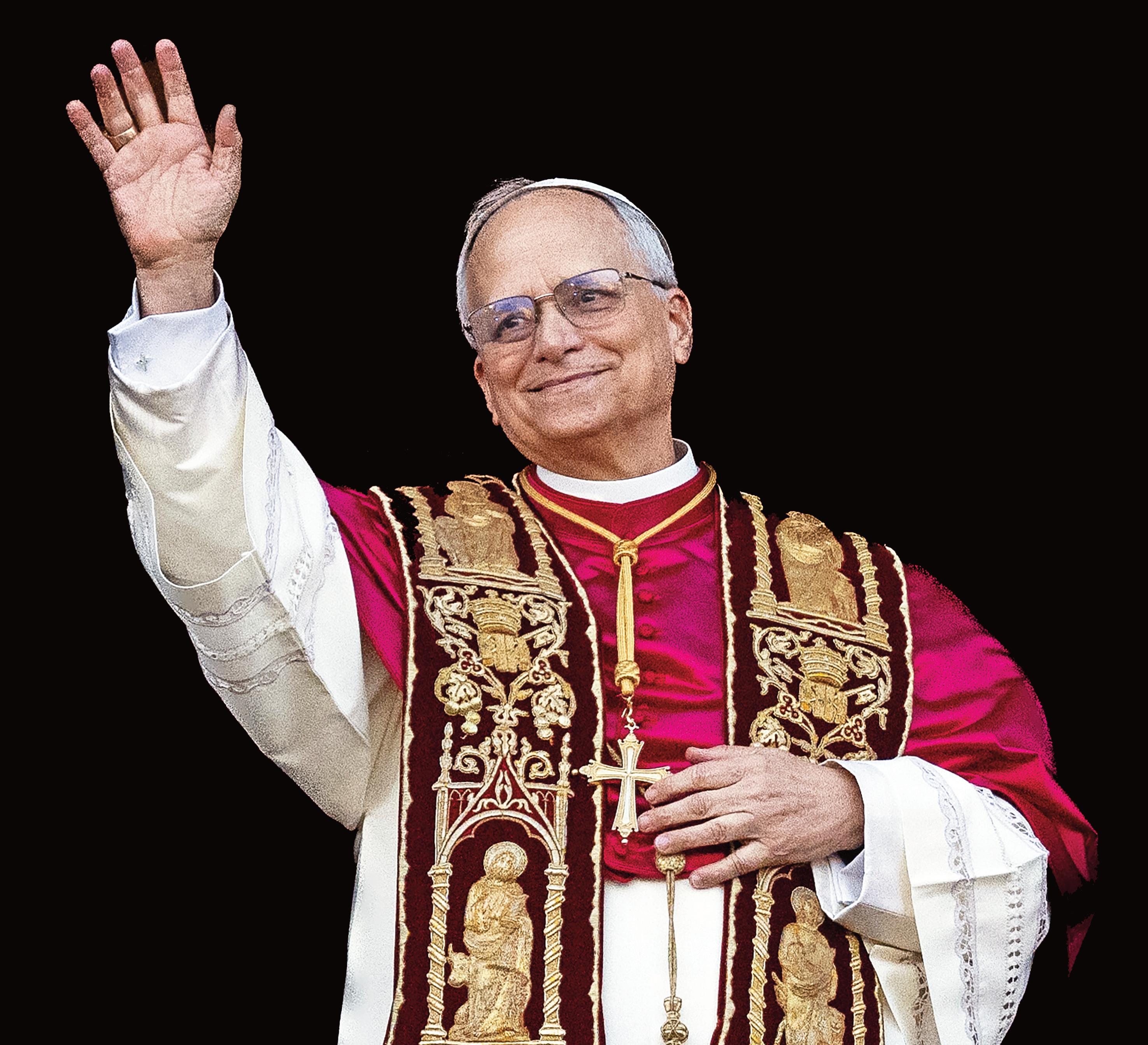















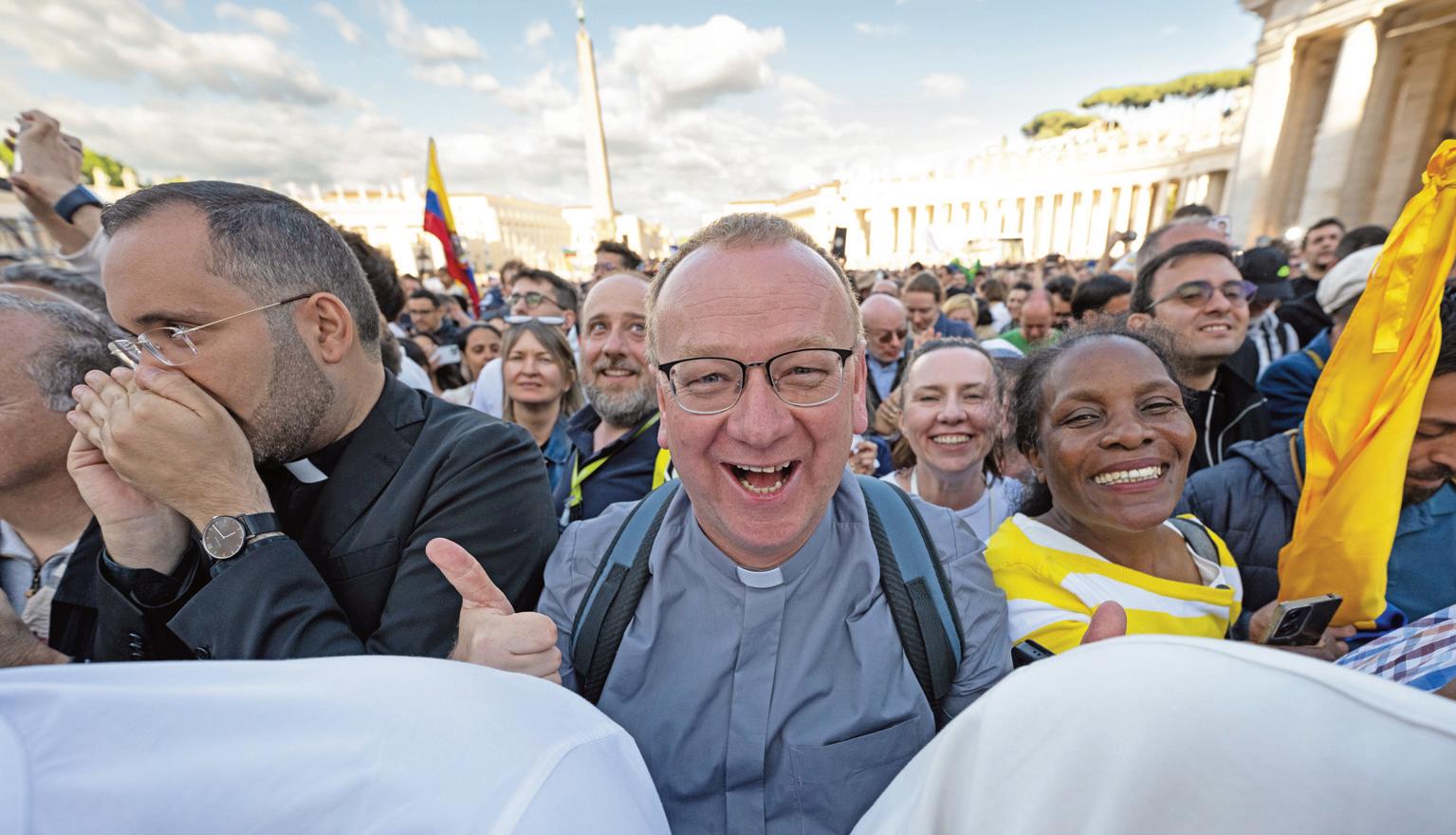



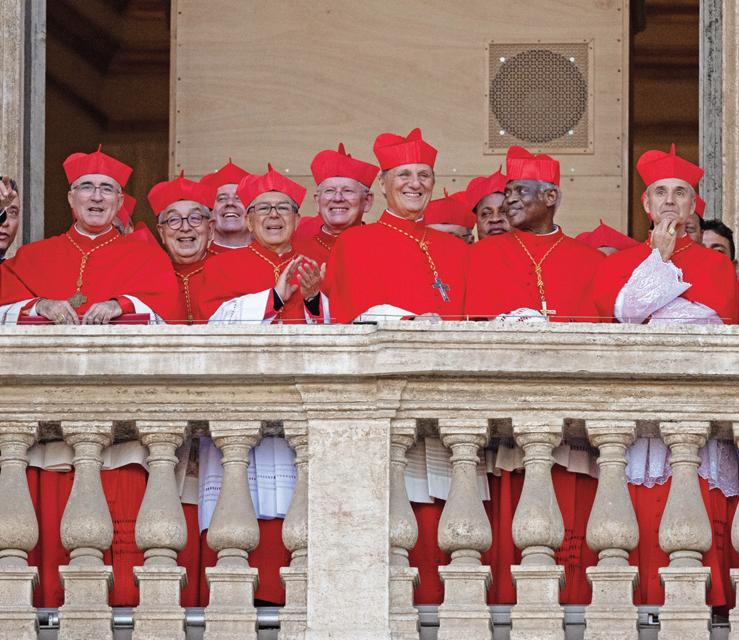
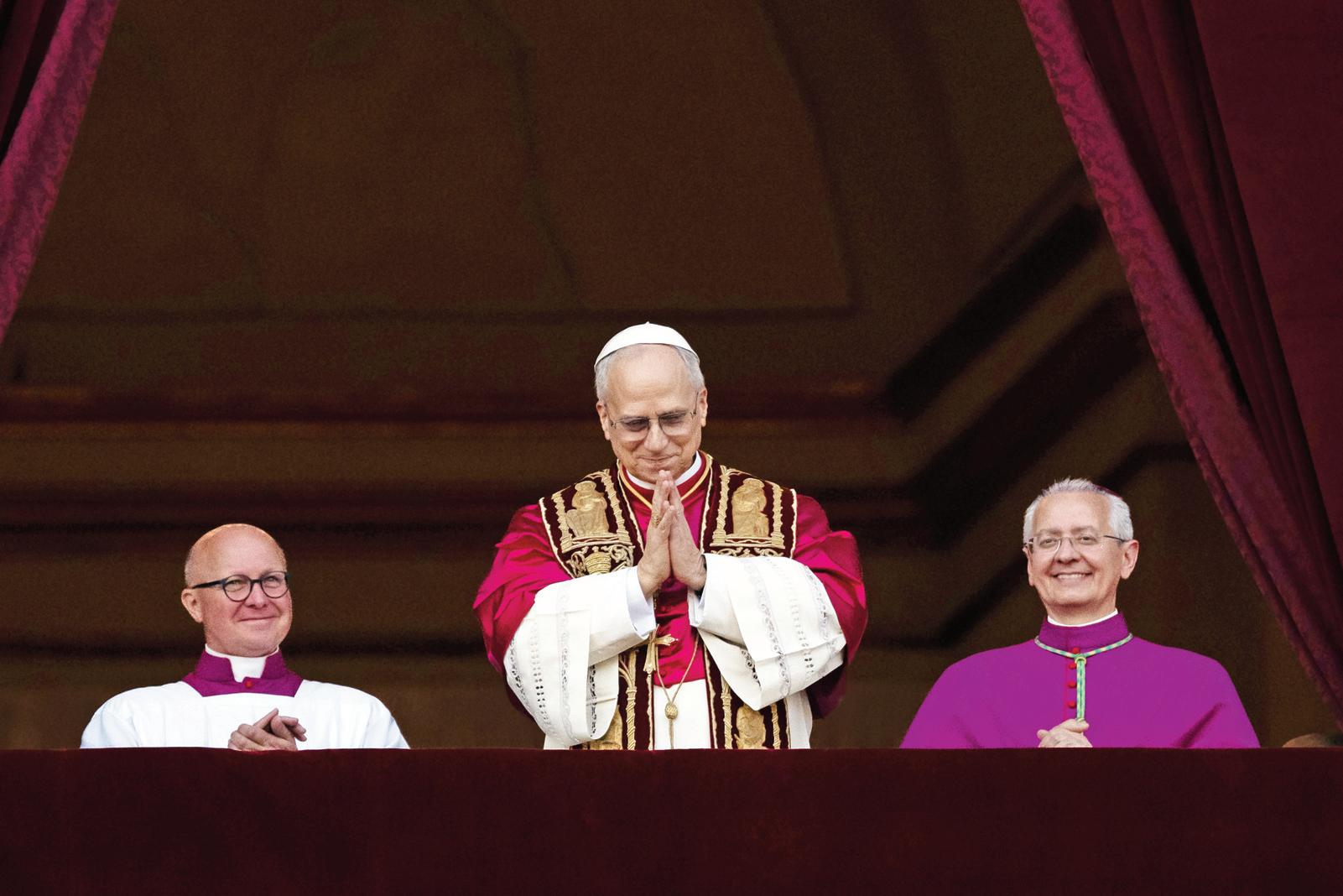
A Greek-Melkite Archbishop of Lebanon recounted the following intervention of Our Lady in 1976. He had personally spent the night in Deir-el-Ahmer, a village with a Christian population of 8,000 people, under heavy artillery attack from the hill above. They spent a sleepless night in prayer, continuing as the shelling starting all over again in the morning.
Neighbouring villagers thought that Deir-el-Ahmer must have been completely destroyed, and their priest prayed the whole night for the village, said mass for them very early in the morning and set out for Deir-elAhmer.
On his way, he met a lady dressed in black. Surprised, he greeted her and asked her where she was going so early in the morning. She replied, “I am going to Deir-el-Ahmer… where are you going, Father?” He replied that he too was going there.
But as this priest knew all the people in the village, he wondering who this stranger was and asked her name. The lady replied, “I am the Virgin Mary.”
As the priest knelt before her, he noticed that her hands were covered with soot and dirt. “But why are your hands so blackened?” the priest asked.
She said, “Because last night I diverted the fire that went down on Deir-el-Ahmer and I am going to protect them again this morning. Go and tell the people that no one will be hurt and, after three days, there will be peace.” Then she disappeared.
It is reported that not a single person in the village was hit or even injured and only very minor damage was done. Three days later, a truce was declared in the Lebanon which lasted some time, during which the region was not attacked again.
Our prayer is so needed. Our prayer, our daily acts of kindness and patience in daily duties, can and will give peace and hope to others and allow Our Lady to intercede. www.crownofthorns.org.uk email:office@crownofthorns.org.uk

Robert Francis Prevost, known to the world today as Pope Leo XIV, was born on 14 September 1955 in Chicago, Illinois, into a culturally rich and devout Catholic family. His father, Louis Marius Prevost, was of French and Italian heritage, and his mother, Mildred Martínez, of Spanish descent. This multicultural background would later shape not only his pastoral sensitivity but also his language skills.
Prevost’s religious vocation began early. His brother, Lou, recalls that from a very early age whilst other children were playing soldiers, Robert was role playing being a priest. He entered the minor seminary of the Augustinian Fathers and later studied at Villanova University, an Augustinian institution in Pennsylvania. There, he earned a degree in mathematics in 1977. That same year, he entered the novitiate of the Order of Saint Augustine (O.S.A.) in Saint Louis, making his first profession in 1978 and solemn vows in 1981.
His theological formation was undertaken at the Catholic Theological Union in Chicago. In 1982, he was ordained a priest in Rome at the Augustinian College of Saint Monica. He was just 26 years old. From the outset, Prevost’s ministry was marked by international engagement, rigorous scholarship, and an unwavering commitment to the Church’s mission in the developing world.

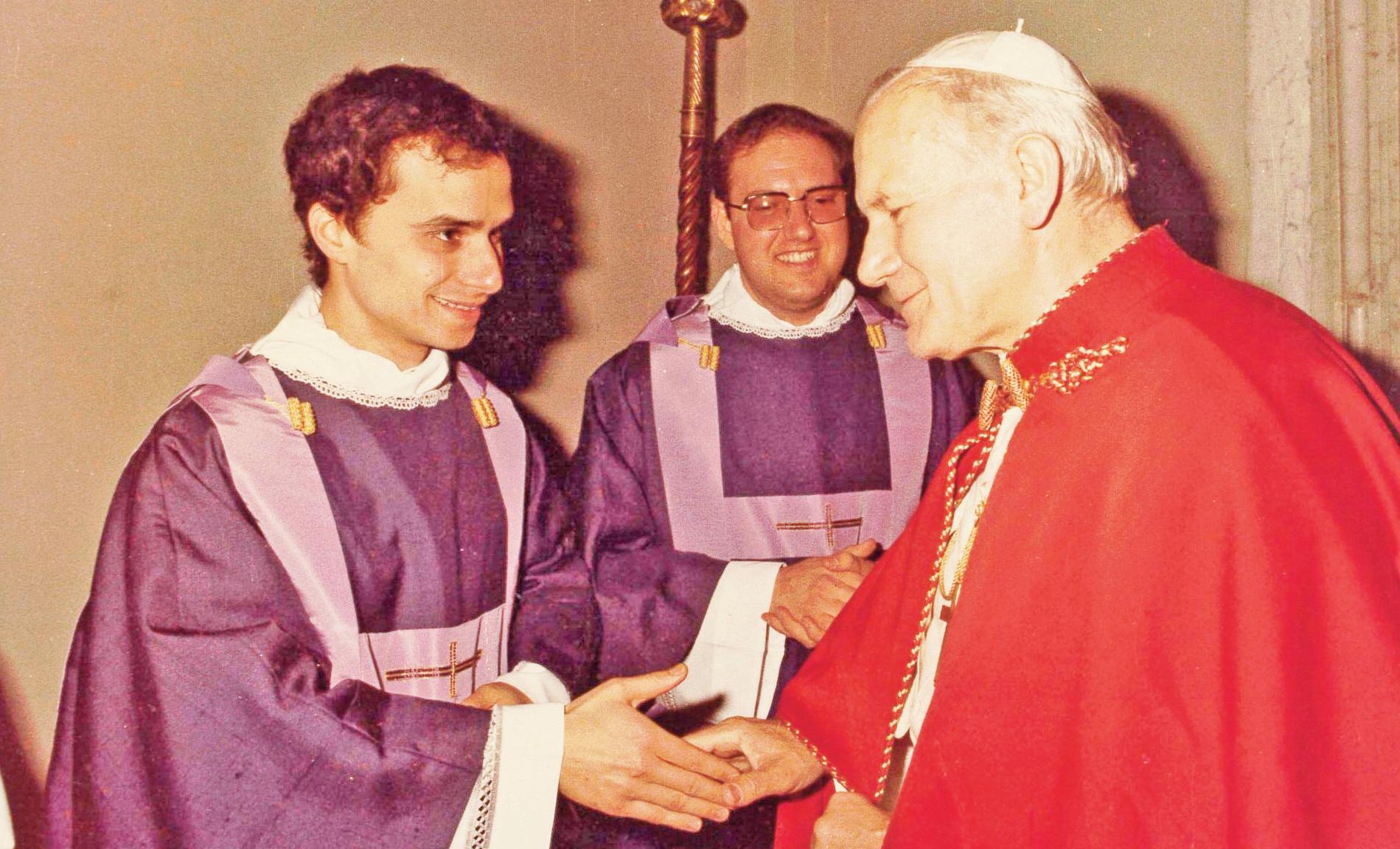
Prevost’s academic accomplishments are particularly notable. He was sent by his superiors to the Pontifical University of Saint Thomas Aquinas (Angelicum) in Rome, where he earned a licentiate in canon law in 1984. The following year, he began work on his doctoral dissertation, focusing on the governance structures of his religious order. In 1987, he successfully defended his thesis entitled “The Role of the Local Prior in the Order of Saint Augustine.”
His academic credentials were not confined to the classroom. In Peru, where he served as a missionary for over a decade, Prevost taught Canon Law at the Major Seminary “San Carlos y San Marcelo” in Trujillo. His work in theological education helped form a generation of Peruvian clergy with a strong foundation in doctrine and a pastoral approach grounded in local realities
Prevost’s years in Peru remain one of the defining periods of his life. He arrived in Chulucanas in 1985 and soon after moved to Trujillo, where he served as formation director, prior, and judicial vicar for the Archdiocese. His pastoral work included service in impoverished neighbourhoods, where he founded and administered parishes such as Our Lady
Mother of the Church and Our Lady of Monserrat. His deep immersion in Peruvian society and Church life earned him a reputation for compassion, simplicity, and effectiveness.
In 1999, he returned to the United States and was elected Provincial Prior of the Augustinian Province of “Mother of Good Counsel” in Chicago. Just two years later, he was chosen as Prior General of the Order of Saint Augustine, a role he held for two terms from 2001 to 2013. During his leadership, he visited Augustinian
communities in over 50 countries and promoted intercultural dialogue and formation.
Prevost’s linguistic fluency is one of his most defining and practical attributes as a leader of a global Church. He speaks English, Spanish, Italian, and Latin fluently. Growing up in a multilingual household, he was naturally exposed to different languages. His years in Peru made Spanish his daily working language, both in the classroom and in pastoral settings.


In Rome, where he pursued graduate studies and later worked in senior Vatican roles, he developed complete fluency in Italian and scholarly proficiency in Latin. His capacity to preach, teach, and govern in multiple languages has made him an effective communicator, capable of fostering trust and unity across diverse cultural and linguistic contexts.
Episcopal and Vatican Service
In 2014, Pope Francis appointed him Apostolic Administrator of the Diocese of Chiclayo, Peru, and subsequently its bishop. In 2019 and 2020, he was appointed to the Congregations for the Clergy and Bishops, respectively. In January 2023, he was called to Rome to serve as Prefect of the Dicastery for Bishops and President of the Pontifical Commission for Latin America.
He was created a cardinal in the consistory of 30 September 2024, receiving the diaconate of Saint Monica.
In his first address to the cardinals on 10 May, Pope Leo said that there were a number of reasons for choosing the name Leo “but mainly because Pope Leo XIII in his historic Encyclical Rerum Novarum addressed the social question in the context of the first great industrial revolution.” Pope Leo XIII, whose papacy ran from 1878 to 1903, had as his central focus, the conditions of the working classes against the backdrop of the industrial revolution.
Pope Leo went on to say “In our own day, the Church offers to everyone the treasury of her social teaching in response to another industrial revolution and to developments in the field of artificial intelligence that pose new challenges for the defence of human dignity, justice and labour,”
Pope Leo XIV brings a unique combination of experience and vision to the papacy. With a deep commitment to unity, his episcopal motto, In Illo uno unum ("In the one Christ we are one"), reflects his dedication to fostering reconciliation and strengthening the Church’s
global unity. Having spent significant time as a missionary in Peru, he understands the challenges facing diverse regions of the Church and is likely to prioritise a global, inclusive approach, with particular attention to Latin America, Africa, and Asia.
His extensive academic background, especially in canon law and theology, suggests a papacy focused on the education and formation of clergy, ensuring they are well-equipped for contemporary pastoral challenges. Pope Leo XIV is also likely to continue advocating for interfaith dialogue, building on his years of experience with the Vatican’s Dicastery for Interreligious Dialogue.
With a history of working in impoverished areas, it is likely that his focus will be on social justice, addressing poverty and inequality and promoting human rights. Additionally, his papacy will likely continue the Church’s commitment to environmental stewardship, building on the legacy of Pope Francis.
Photos courtesy of the Midwest Augustinian Province of Our Mother of Good Counsel
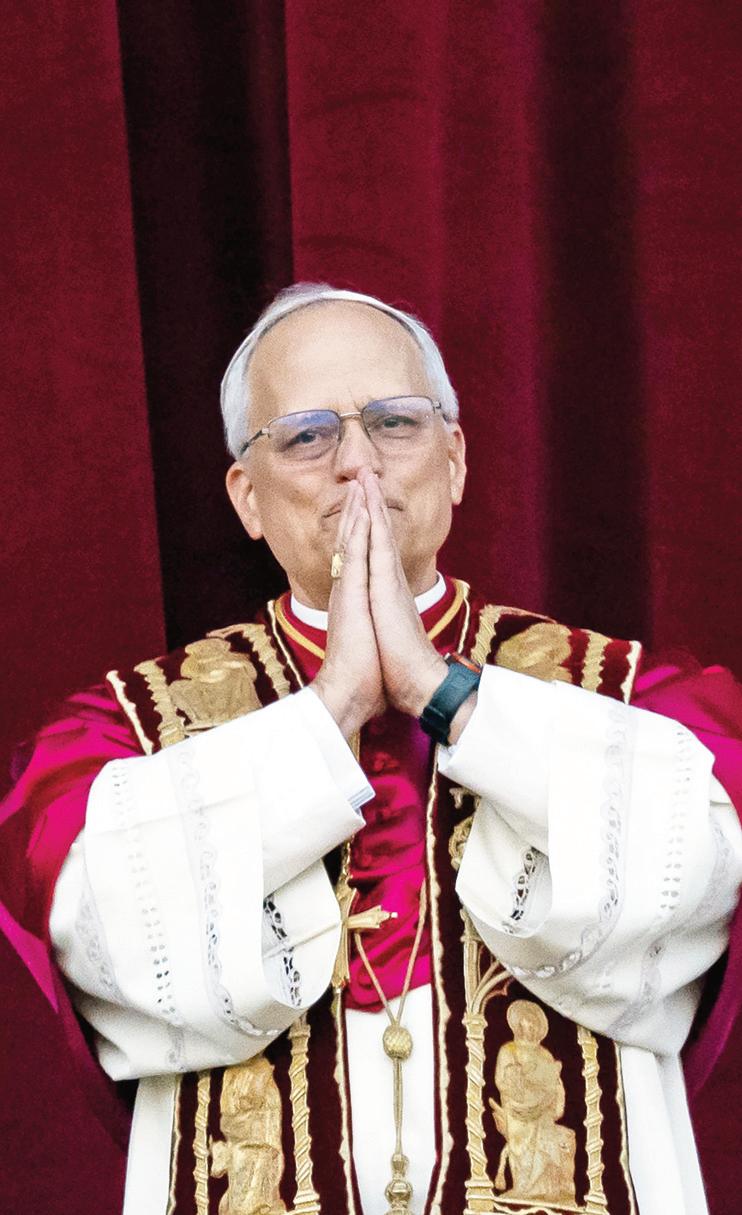
The shield is divided diagonally into two sections. The upper half features a blue background with a white lily.
The lower half of the shield has a light background and displays an image that recalls the Order of Saint Augustine: a closed book with a heart pierced by an arrow. This is a direct reference to the conversion experience of Saint Augustine himself, who described his personal encounter with God’s Word using the phrase: “Vulnerasti cor meum verbo tuo” - “You have pierced my
with your Word.”

Pope Leo XIV has also chosen a motto that reflects this Augustinian tradition: In Illo uno unum, which means “In the One, we are one.” The phrase is taken from Saint Augustine’s Exposition on Psalm 127, where he explains that “although we Christians are many, in the one Christ we are one.”
In a 2023 interview with Vatican News' Tiziana Campisi, then-Cardinal Robert Francis Prevost spoke about the significance of this motto: “As can be seen from my episcopal motto, unity and communion are truly part of the charism of the Order of Saint Augustine, and also of my way of acting and thinking,” he said. “I believe it is very important to promote communion in the Church, and we know well that communion, participation, and mission are the three key words of the Synod. So, as an Augustinian, for me promoting unity and communion is fundamental.”
Saint Augustine’s reflection on Psalm 127 highlights the theological foundation of this idea. “Christ - head and body - is one single man. And what is the body of Christ? His Church,” Augustine writes. He then adds, “Although we Christians are many, in the one Christ we are one. We are many and we are one - because we are united to Him, and if our Head is in heaven, the members will follow.”
When the 133 elector Cardinals chose Pope Leo, the world took note of a historic first: an American-born pope. But to frame his papacy solely through the lens of his US origins is to miss the heart of his spiritual identity. While he was born and raised in Chicago, Illinois, it is in Peru—among its people, its parishes, and its pastoral challenges—that Prevost’s identity as a priest, bishop, and leader of the Church was truly forged.
Prevost’s connection to Peru began in the mid1980s when he was sent as a missionary of the Order of St Augustine to the diocese of Chulucanas in northern Peru. What was originally intended to be a temporary assignment turned into a lifelong commitment to the people of Peru. He immersed himself in the language, culture, and spiritual life of the region. He was not a missionary who remained distant or foreign—he lived among the people, shared their hardships, and listened deeply. Over time, he came to be regarded not as an outsider bringing help, but as one of their own.
For nearly two decades, Prevost worked in Peru, eventually serving as regional superior of the Augustinian missions. His fluency in Spanish and his pastoral sensitivity earned him the trust of both clergy and laity. He helped form seminarians, supported rural communities, and championed indigenous pastoral strategies that respected local customs and traditions. Unlike many foreign missionaries who return home after a few years, Prevost built his entire priestly life around Peru’s ecclesial and social landscape.
In 2014, Pope Francis appointed him apostolic administrator of the Diocese of Chiclayo, a major coastal city in northern Peru. A year later, he became its bishop. In that role, Prevost again demonstrated his deep commitment to the country. He was known for his accessibility, humility, and insistence on social justice and pastoral care in a region facing both economic inequality and corruption.
Peruvians came to see Prevost not as a foreign bishop imposed by Rome but as a shepherd rooted in their soil. He earned a reputation for standing with the poor, advocating for indigenous rights, and calling for ethical governance. He frequently travelled on foot or by local buses to reach remote communities, echoing the pastoral style promoted by Pope Francis. In Chiclayo, his home was never offlimits; he was known for hosting informal conversations with parishioners and clergy alike.
By contrast, Prevost’s American background— while formative in his early education and religious vocation—has long taken a back seat in his public ministry. He has spent the majority of his clerical life outside the United States and has rarely been involved in US church politics or diocesan structures.
This dual identity is not a contradiction but a bridge. As Pope Leo XIV, Prevost brings the best of both worlds: the intellectual formation and global reach of American Catholicism, and the lived, compassionate witness of the Latin

American Church. Yet it is his Peruvian experience—his deep bonds with its people and his decades of local ministry—that define the tone of his leadership. In style, spirit, and substance, Robert Prevost is a pastor from Peru. Though born in Chicago, he became a
priest in Chulucanas, a bishop in Chiclayo, and a pope for the global South.
President Boluarte said the new Pope was a “Peruvian citizen by choice and heart. He chose to be one of us, live among us and carry in his heart the faith and culture of this nation.”
President Zelensky: 'We deeply value his words'
Pope Leo XIV and Zelensky discussed peace, ceasefire, prisoner release, deported children, and future visit.
Pope Leo XIV and Ukraine's President Zelensky have spoken by phone, according to the Director of the Holy See Press Office, Matteo Bruni.
The phone call follows the Pope's appeal for peace in Ukraine during his Regina Caeli address from the central loggia of St. Peter's Basilica on Sunday afternoon.
Appeal for true, just and lasting peace for beloved Ukrainian people
During his remarks following the midday Easter prayer, he said, “I carry in my heart the
suffering of the beloved Ukrainian people,” urging that "every effort be made to reach a true, just, and lasting peace as soon as possible."
“May all prisoners be freed, and may the children be returned to their families," he said.
The Pope had recalled that on 8 May, “the immense tragedy of the Second World War" came to an end 80 years earlier, “after causing 60 million deaths.”
He then appealed that there never again be war, making specific appeals for Ukraine, Gaza, and on the India-Pakistan border.
Following the conversation with the Pope, President Zelensky posted on X about his first conversation with Pope Leo XIV, saying he thanked the Pope for his support of Ukraine.
"We deeply value his words about the need to achieve a just and lasting peace for our country and the release of prisoners," said the Ukrainian President, adding they also discussed "the thousands of Ukrainian children deported by Russia."
Ukraine, the President underscored, "counts on the Vatican’s assistance in bringing them home to their families."
In addition, he said he informed the Pope about "the agreement between Ukraine and our partners that, starting today, a full and unconditional ceasefire for at least 30 days must begin."
Wanting the war to end
The President added that he reaffirmed "Ukraine’s readiness for further negotiations in any format, including direct talks."
In this spirit, he said, "Ukraine wants to end this war and is doing everything to achieve that," and that Ukraine "awaits similar steps from Russia."
President Zelensky noted he has invited Pope Leo XIV to make an Apostolic Journey to Ukraine, saying such a visit "would bring real hope to all believers and to all our people."
"We agreed to stay in contact and plan an in-person meeting in the near future," he said.
by Deborah Castellano Lubov
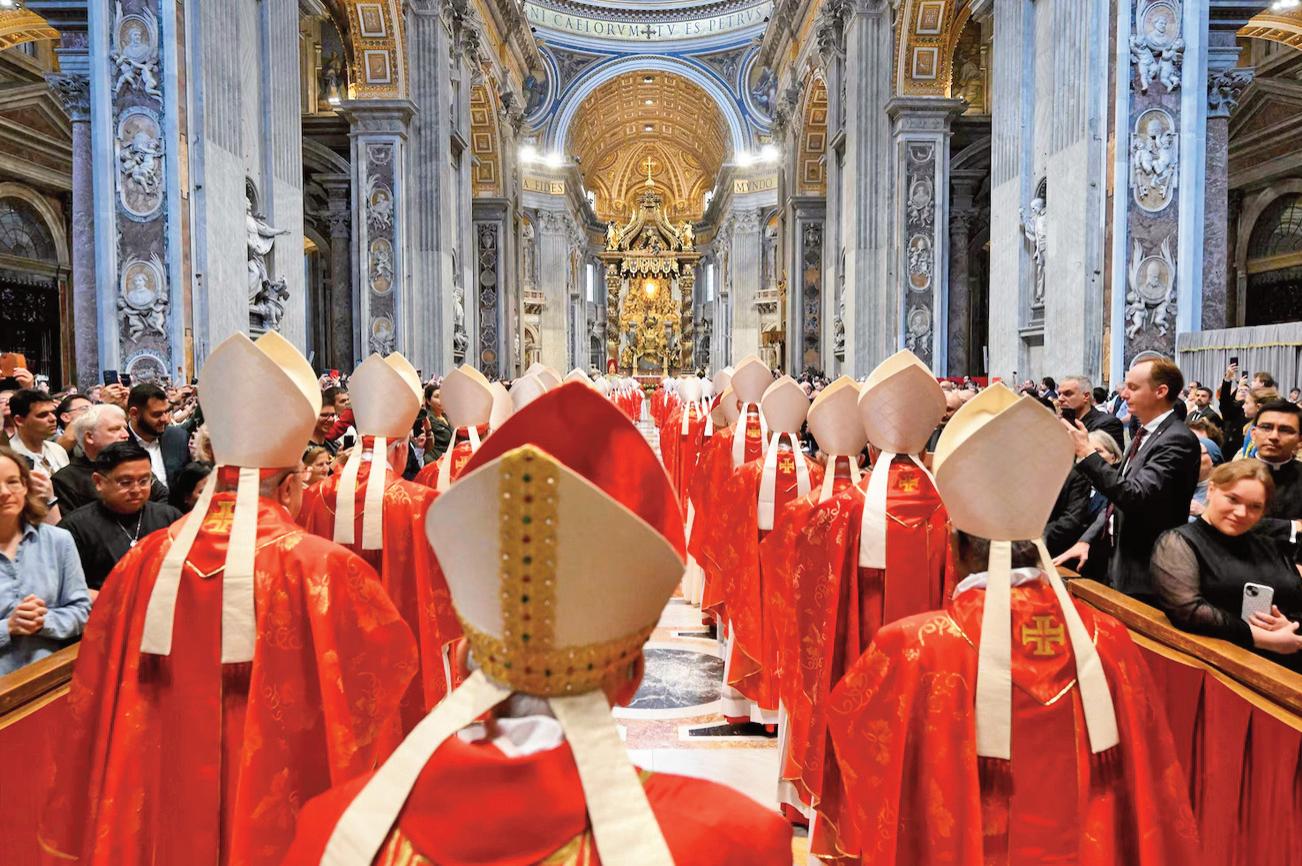
Shortly before conclave began, the National Catholic Reporter, (NCR) based in Kansas City, Missouri, USA, published a database listing all the cardinals taking part in the Conclave that would ultimately elect Pope Leo XIV.
The database makes it possible to easily sort cardinals by birth continent, religious order, which pope made them a cardinal, as well as their stances on seven issues facing the church.
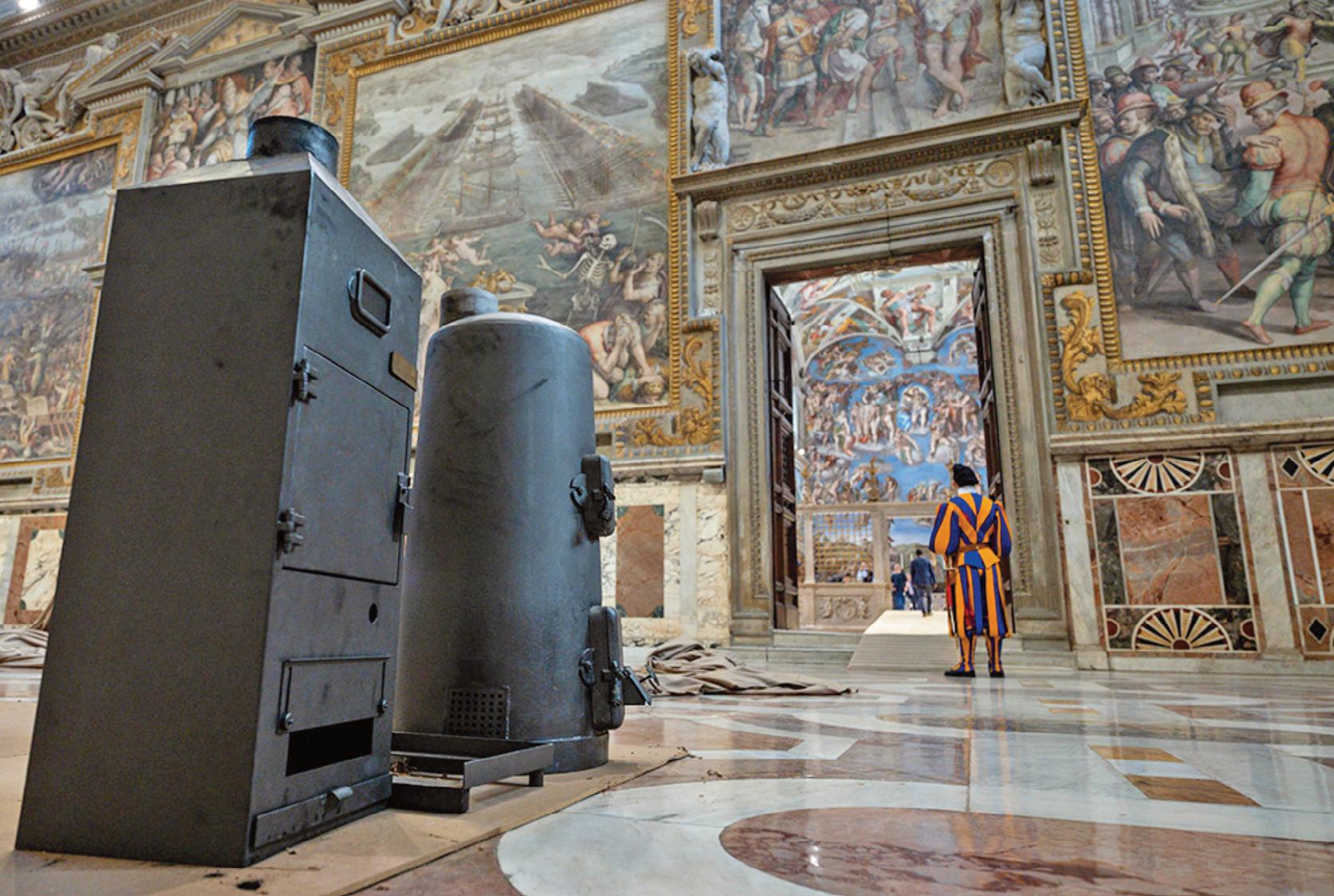
The journalists at NCR spent hours reviewing biographies, background, articles, speeches, homilies and media interviews and the resulting findings make it clear that although Pope Francis appointed over 80% of the voting cardinals, he didn’t do so based on their views being similar to his own. The database allows you to hover over each person to view coloured dots indicating whether they were in agreement with Francis on an issue (green dot) or in disagreement (red dot). It is clear that many of the cardinals appointed by Pope Francis disagreed with him on some of the key issues.
The biggest change between the make up of the voting cardinals in 2013 when Pope Francis was elected and 2025 was the spread of cardinals by geography. In 2013 over half were from Europe whereas by 2025, that had fallen to 44% in recognition of those parts of the world previously underrepresented.
Use the QR code right to visit the database and learn more about the voting cardinals


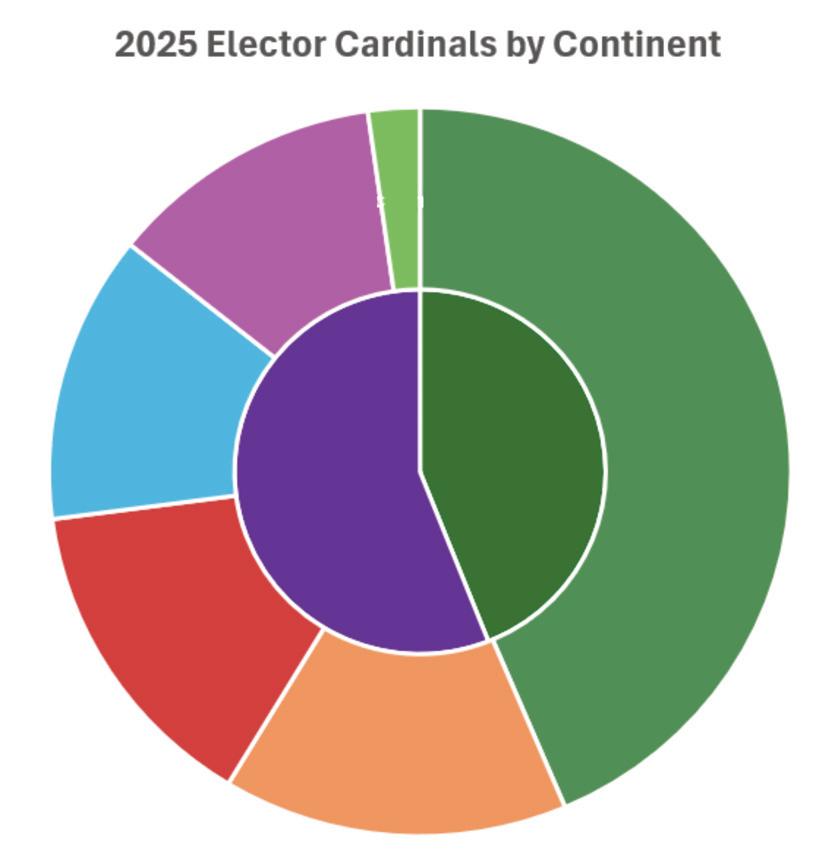
Religious orders have long been a defining feature of the Catholic Church, shaping its spiritual life, social mission, and institutional development in ways that continue to resonate today. From the silent cloisters of contemplative monasteries to the bustling corridors of Catholic schools and hospitals, the influence of religious orders is woven into the very fabric of Catholicism. But what makes these communities so significant, and why do they matter in the modern world?
At the heart of every religious order lies a unique charism-a spiritual gift or focus that animates the community’s way of life and service. These charisms are as diverse as the orders themselves. The Franciscans, inspired by St Francis of Assisi, are renowned for their commitment to poverty and care for the marginalised. The Jesuits, or Society of Jesus, from which Pope Francis was chosen, are known for their educational and missionary zeal. The Benedictines embody a life balanced between prayer, work, and hospitality while the Augustinians, from whom Pope Leo has been
chosen, ‘call nothing (their) own, but let everything be (theirs) in common.’
This diversity of charisms allows the Church to respond to a wide array of needs, both spiritual and practical. Whether it is through running schools, providing healthcare, engaging in missionary work, or offering a life of prayer and contemplation, religious orders ensure that the Church’s mission is lived out in myriad ways.
One of the most distinctive aspects of religious orders is their communal way of life. Members, known as religious, take solemn vows-typically poverty, chastity, and obedience-which bind them to their communities and set them apart from secular clergy and laypeople. These vows are not mere formalities; they represent a radical commitment to follow Christ and serve the Church.
Community life offers both support and challenge. Living, praying, and working together, religious support one another in their spiritual journeys and in their ministries. This communal witness is itself a powerful sign to
the wider Church and society, demonstrating the possibility of living out the Gospel values in a world often marked by individualism and self-interest.
The historical impact of religious orders cannot be overstated. Since the early centuries of Christianity, monastic communities have preserved and transmitted learning, culture, and faith. Medieval monasteries were centres of agriculture, education, and hospitality. Later, mendicant orders like the Franciscans and Dominicans brought the Church’s presence into towns and cities, preaching to the people and serving the poor.
In more recent centuries, religious orders have been pioneers in education, healthcare, and social justice. Many of the world’s leading universities and hospitals were founded by religious communities. Their commitment to the poor and marginalised continues to inspire countless initiatives around the globe, from soup kitchens and orphanages to advocacy for human rights.
Religious orders enjoy a certain degree of autonomy within the Church. Each order has its own governance structure, traditions, and spiritual practices, allowing it to adapt to local needs and circumstances. Some, like the Benedictines, are organised as loose federations of autonomous houses, while others, like the Jesuits, have a more centralised structure.
This flexibility has enabled religious orders to survive and thrive through centuries of change, reform, and even persecution. Their ability to adapt while remaining rooted in their founding charisms is a testament to their enduring relevance.
Perhaps the greatest significance of religious orders lies in their embodiment of the Church’s unity in diversity. Each order is a distinct expression of the one Catholic faith, contributing its unique gifts to the Church’s mission. Together, they form a living mosaic, reflecting St Paul’s vision of the Church as a body with many parts, each playing its role for the good of all.
offer spiritual guidance and practical solutions to break the cycle of hardship.
Sisters’ solar project empowers Malawi’s poor, echoing Pope Francis’ call for environmental justice and dignity.
As the sun sets over Malawi's rural areas, darkness no longer signals the end of the day for thousands of families.
Thanks to a life-changing initiative of the Sisters of the Holy Rosary, solar-powered lighting is illuminating households and empowering communities with newfound hope and opportunities, Sister Jecinter Antoinette Okoth writes for Vatican News: “Solar lights have significantly improved the daily lives of over 9,000 households in Malawi, especially in areas with no access to electricity," said Sr Bernadette Mnyenyembe, Superior General of the Missionary Sisters of the Holy Rosary Congregation (MSHR). She leads a group of religious women working with marginalized communities to provide sustainable solar solutions.
At the heart of the initiative is a group of 15 dedicated sisters proving that service, faith, and innovation can transform lives. Inspired by their mission to alleviate poverty, they
The sisters collaborate with Watts of Love, a non-profit organization using a proven, scalable model to empower individuals to rise from the literal darkness of poverty. The organization provides solar-powered lights, offering communities a safer, cleaner, and more cost-effective alternative to traditional lighting sources.
According to Sr Mnyenyembe, Watts of Love engages religious women in their program to reach the remotest parts of the country and the most vulnerable, as the sisters already serve at the grassroots level.
"As a congregation, our charism is to proclaim the kingdom of God in love," she explained. "Therefore, we cannot proclaim it without listening and responding to the spiritual and human needs of the people around us. We must educate, preach, provide health services, and assist the poor through social services."
As thousands of households receive solar lights, the ripple effect is apparent-brighter nights lead to brighter futures. In a countrywhere access to electricity remains challenging, these simple yet powerful solutions prove that a little light can go a long way in transforming lives.
“I see God sending Watts of Love to minister to the poor and the suffering," said Sr
Mnyenyembe. "The organization not only distributes the lights but also empowers people to use the money saved from buying batteries, candles, or paraffin to start businesses or other activities that improve their lives."
She emphasized that recipients of solarpowered lights are first introduced to the vision of Watts of Love, which motivates them to use the lights effectively.
"I really see the importance of education in changing mindsets and enabling people to do things differently," she added.
This initiative has become a bridge between faith and action for the sisters, whose mission is deeply rooted in service to the poor and marginalized. More than just offering material support, it has reshaped perspectives, emphasizing respect, dignity, and the boundless love of Jesus for all.
“This program has helped us put our faith into action," Sr Mnyenyembe told Vatican News. "In most cases, we do not have material items to give, but this program has allowed us to do so. By serving the poor, we witness Jesus' love for everyone, gathering His flock without discrimination and treating each person with respect as a child of God."
After engaging with Watts of Love since 2024, Sr Mnyenyembe highlighted that solar lights have significantly improved people's daily lives

in Malawi. "Students can study at night and complete homework without relying on expensive and harmful kerosene lamps, torches, or candles. Better lighting has improved concentration and learning outcomes."
Additionally, she noted, "Through the savings people accumulate every week or month, they can invest in farming or businesses, helping to boost local economies."
As the project continues to expand, Sr Mnyenyembe hopes its impact will inspire hope and allow more people to break free from dependency, stepping into a future where they can thrive on their own.
Friday, 2 May saw the release of a bonus episode of the All Kinds of Catholic podcast. Guests from four continents discussed Pope Francis' legacy in their lives and shared their hopes for the next pope. The following discussions took place before the election of Pope Leo XIV.
Peter, from the Philippines, happened to be in Rome and was able to say a last farewell in person. Matthew has Nigerian heritage but stresses that the ethnicity of the new pope is something to "look beyond" - despite recalling how he finished work early on the day Barack Obama was elected President of the United States, to mark the occasion. Judy, speaking from America, reminds listeners that Pope Francis, "…visited war-torn areas. He went there and put himself at risk." She hopes, and is praying for, "more of the same." Everyone
references the importance of the Holy Spirit in the discernment of the new pope. But journalist Andy Drozdziak also suggests that the way the cardinals are spending time together, seeking to build warm relationships in advance of the conclave, "might be a little bit of a fruit of Pope Francis."
Theresa said: "Like many people, I spent time reflecting prayerfully on how best to respond to the death of Pope Francis and the election of a new pope. Podcast listeners will know that Pope Francis has been spoken of in many existing episodes. Four previous guests, from diverse backgrounds, returned to participate in this dedicated conversation. I hope listeners will tune in to hear their thoughtful insights."
The podcast is created and hosted by Theresa Alessandro and boasts more than 6000 downloads so far - and a mention in The Guardian last week. In each episode, Theresa


is in conversation with a different 'ordinary' Catholic guest exploring how they live their faith in today's world. The regular episodes will continue to be released on Wednesdays, alongside the bonus one.
Scan the QR Code to listen to the podcast


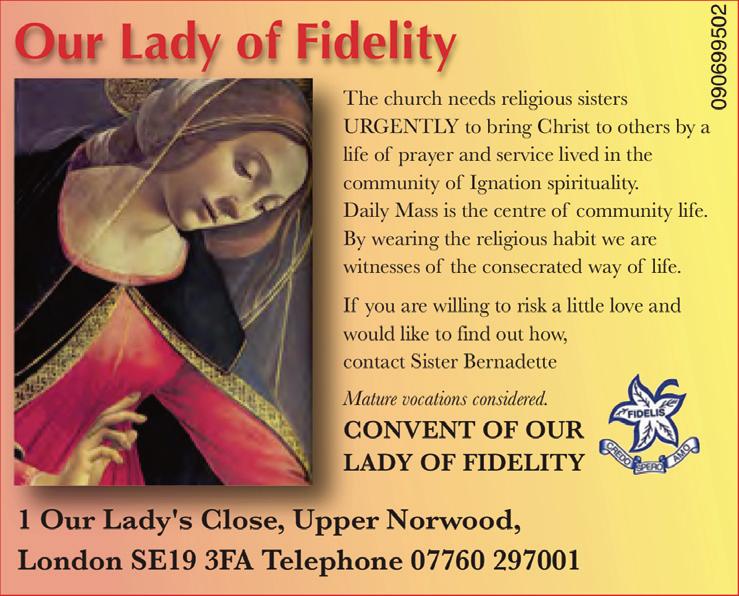

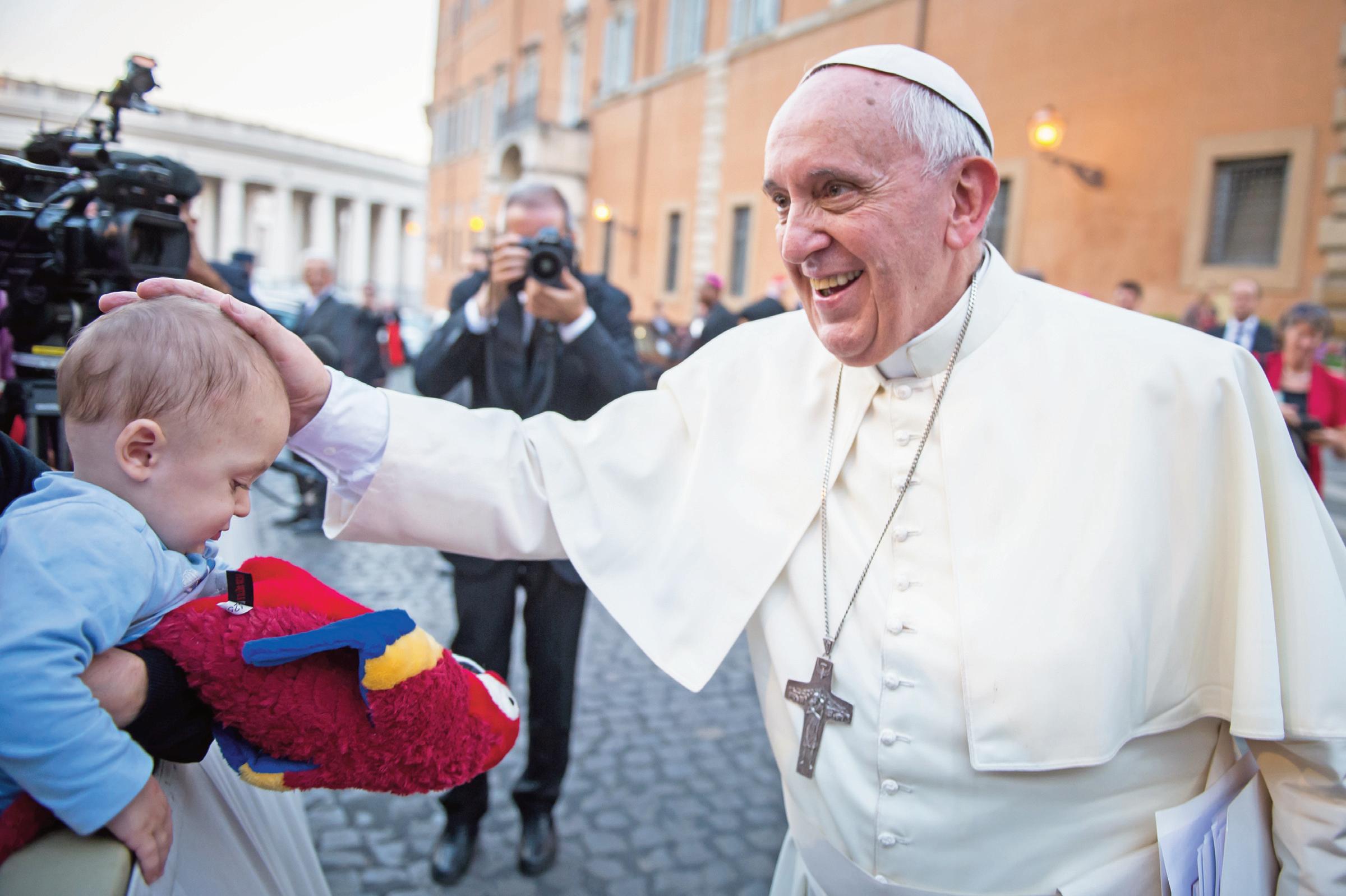
In the weeks following the death of Pope Francis, we opened several digital books of condolence for Catholics around the world to leave their reflections, thanks and prayers for Pope Francis. The messages were left by Catholics and Non-Catholics alike - here are a selection.


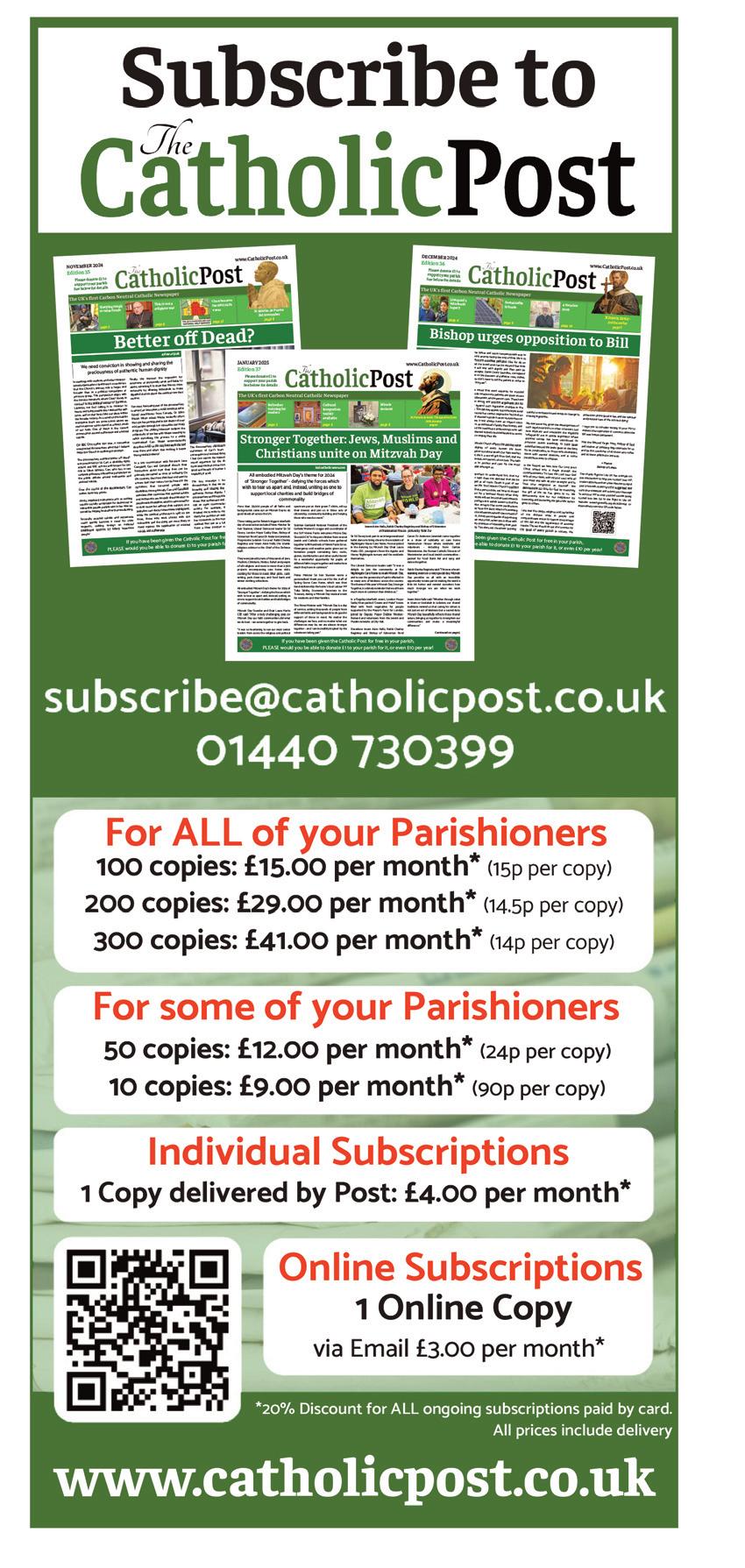
Thank you for your inspiring words which gave hope to so many people. Thank you also for your sincere love and care for the sick, the sad, the underprivileged. You helped show the way to look after our beautiful earth. Rest in peace Francis.
Mary, Kirkby








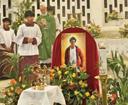














You inspired so many of us to be better people, acting with humility and compassion for all. I was baptised & confirmed at the Easter Vigil, choosing to take the name Francis, not only for Francis of Assisi, but also for you. You showed all of us how to follow Christ’s example, leading the flock with passionate humanity. May you find the arms of our Lord waiting for you. Requiescat in Pace.
Jonathan, Wendover
Thank you Pope Francis. You showed me what it really means to be Catholic. Rest in the presence of our Lord.
Robert, Great Mills
Thank you Pope Francis for restoring my faith in Catholicism. I will always be grateful to you for your wisdom. God Bless you always. Rest in Peace.
Linda, Llandysul
May Pope Francis rest in peace in the Kingdom of God. I have been touched at how the death of Pope Francis has impacted on my teenage children and how they recognise the good that he did and how he spoke up for the poor and marginalised. I hope we can follow his example and that his light will shine on.
O’Neill, Denham
Thank you for your Holiness, for your humanity, and support for the people of Palestine! May you RIP
Nicola, Liverpool
It`s not what people think of you when you arrive, but how people remember you when you`re gone, and I will remember you with love. Your compassion, your joy, your presence, gentleness, non-judgemental approach and care for people on the margins have been inspirational. And now you can rest in our Father`s house. Thank you for being you.
Chris, Leigh
Pope Francis followed in the footsteps of Christ. He was humble, full of mercy and compassion and a champion of the downtrodden and marginalized. May he rest in peace. He will be very much missed.
Joan, Penn
You inspired me to lead a more saintly life. As one of the most influential figures in my life.
Your compassion and kindness always left a smile on my face. I shall miss your speeches and your ability to reach out to those who are ‘on the margins of society’. Your words will resound in my mind and act as lifelong guidance as I continue on my faith journey. Thanks to your holiness, I no longer feel as forgotten or insignificant. I feel loved and assured. You’re one of the reasons I have become a better person. Rest in peace, Franciscus. May God hold and keep you close. Rosalyn, Urmston
As a young worshiper you have shown me what it means to show people basic human kindness and how to love each other despite our differences. You have taught me morals throughout your speeches, that normal day to day life couldn`t. May God bless you on your final journey and thank you. Rest in peace, my humble Pope.
Thomas, Crumpsall
We have been blessed by your leadership as our Shepherd. The embracing of all who are less fortunate, the disenfranchised, working with other faiths has brought the respect of many. Your humbleness not only in word but also in actions has inspired myself and many others. May whoever succeeds you continue the good work you have started.
Serene, Milton Keynes
Pope Francis was a wonderful inspiration not just to Catholics, but to the whole world. He stretched out his hand to everyone, however poor or suffering of any kind. He did not judge, but reflected the compassion of Jesus. He guided the Church in the way of the Gospel and the World in the way of justice and peace.
He listened to the cry of the Earth and the cry of the poor. We will miss him greatly, and hope his successor will follow his ways. We thank God for sending us Francis and wish him eternal bliss.
Graham, Northampton
Rest in Peace Papa Francesco - a Saint that has lived among his flock - it was a privilege to visit you yesterday to pay my respects.
Michele, Atherton
RIP Papa Francisco, I will always remember your warm smile, kindness and humility. Your three words for the harmony of family life: permission, thanks, sorry - and do not end the day without making your peace, have always remained with me.
Jacqueline, Sale
Thank you dear Pope Francis for your love and humility for all people. May your legacy live on. Safe in the arms of Jesus. Goodnight God bless. Rest in peace.
Patsy, Liverpool
Rest in peace Holy Father. You were a beacon of hope in a troubled world. You will be missed by so many. May you now rest in the eternal glory of God who you served so well! Amen
Kirsty, Barry
May you Rest in Peace and Rise in GLORY. We were Blessed to have had you as Pope. You taught the world the meaning of humility. We Prayed for you now we Pray to you. A Saint in the making.
June and David, Neath
Thank you Pope Francis for restoring my faith in Catholicism. I will always be grateful to you for your wisdom. God Bless you always. Rest in Peace.
Linda, Llandysul
Dear Francis, you came into my life, stayed a while and have left. You have left footprints in my heart and I will not be the same again.
Danny, Northants
In a world that often values fame and fortune, you have shone brightly by demonstrating humility and the importance of being humble. Your actions and your work with the poor and those in need show us how we should conduct ourselves, both as human beings and in our spiritual lives. God bless you, and please continue to pray for us. Our love for you burns bright.
Marcus, Bedfordshire
Holy Father, May you rest in peace. Humble, hopeful with a heart of gold. You set the best
example. I hope that the person that follows you, walks in your footsteps x Hayley, Cheadle
Thank you for being a pope who cared for everyone, for living simply and accepting everyone for who they are. You were a wonderful man. You are at peace now with the Lord.
Clare, UK
I personally am not catholic. Also never had the honour to meet Him but am amazed by His humility and love towards people as it should be not in words but in deeds. A man who humble himself even with low placed people, working hard even until the very last breath. A great example and great a legacy.
Rest in peace and see You soon in the day of your resurrection to welcome together our Lord.
With honour and respect Veneta, London
The priests and congregation of St. Alban`s Anglican church Hull wish to send our condolences to our Roman Catholic sisters and brothers on the death of Pope Francis. He was a gentle and humble man dedicated to the service of God and to the people in his care. He will be greatly missed. May he rest in peace and rise in glory.
St Alban's Anglican Church, Hull
On behalf of the Dawoodi Bohra community of Milton Keynes, we extend our deepest condolences to you and to Catholics around the world during this time of mourning for the passing of His Holiness Pope Francis.
A revered figure of faith and wisdom, His Holiness devoted his papacy to serving the Catholic Church with humility, compassion, and an unwavering commitment to social justice. Transcending religious boundaries, his leadership inspired people of all faiths to uphold the values of kindness, justice, and
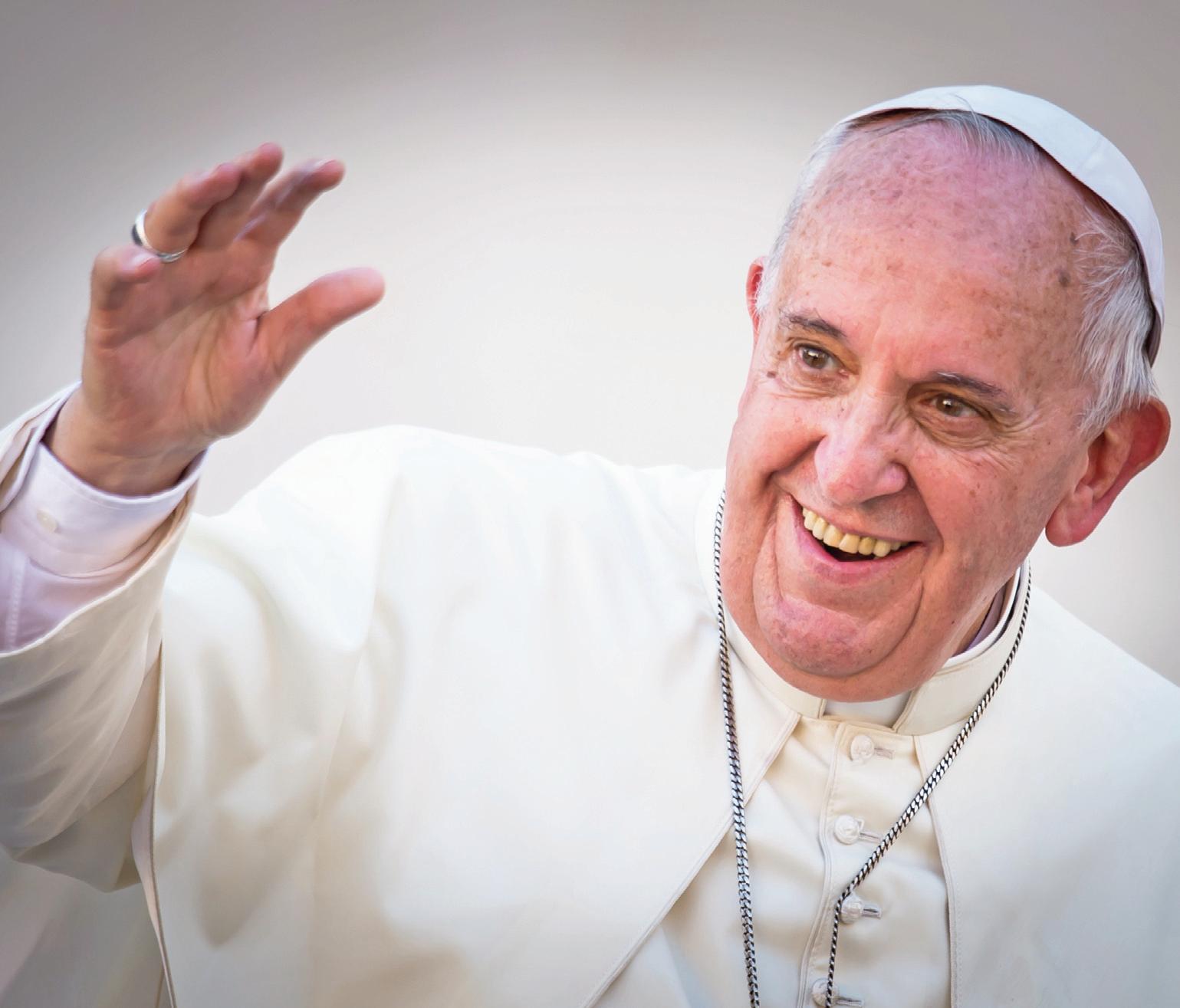
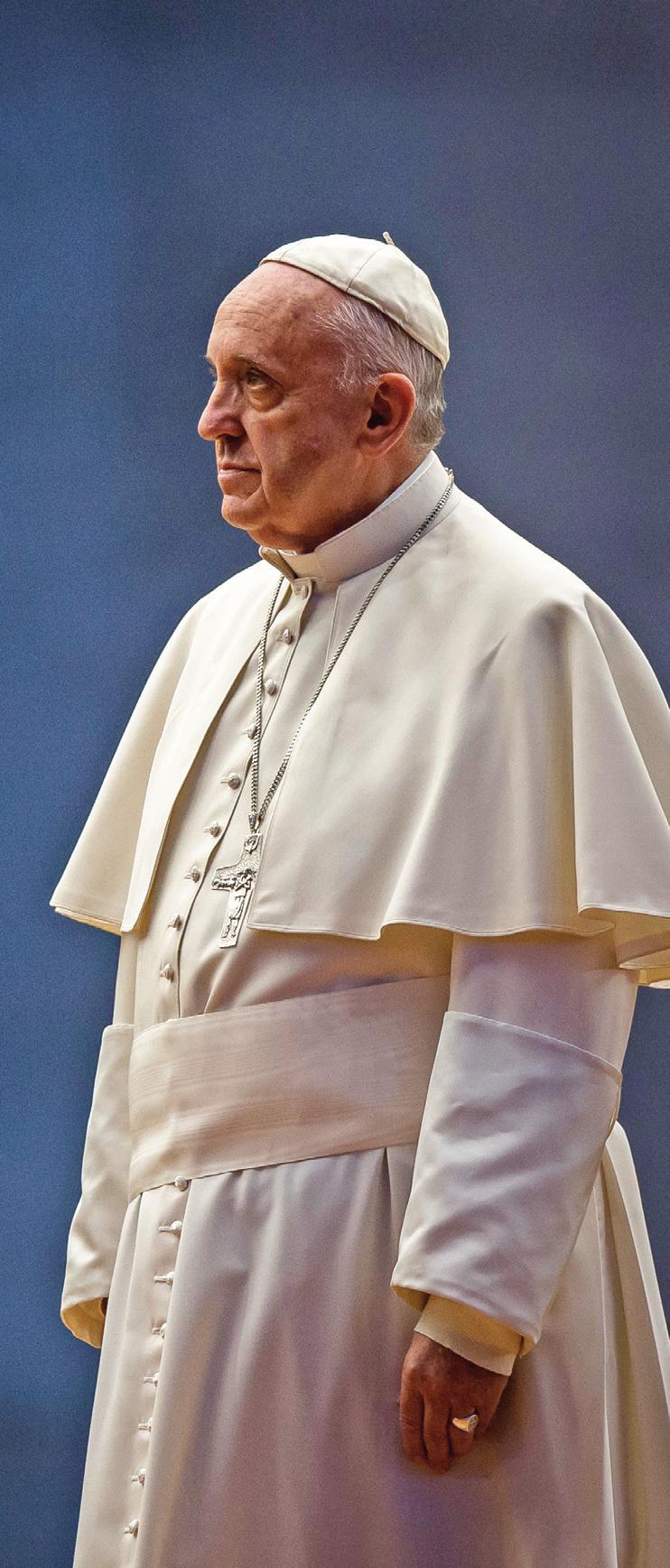
service to humanity. His teachings reminded the world of the love and selflessness embodied by Jesus Christ, virtues that the Prophet Mohammed also emphasised.
We pray that the Almighty continues to grant your community strength, comfort and peace during this difficult time.
With our deepest sympathies. Anjuman - On behalf of the Dawoodi Bohra Community of Milton Keynes
Rest in peace
May Allah bless your soul, thank you for your kindness and tolerance towards all religions. As a Muslim women I was always looking for your actions and how you treated people with respect. We will miss you Pope Francis. Hafida, Liverpool


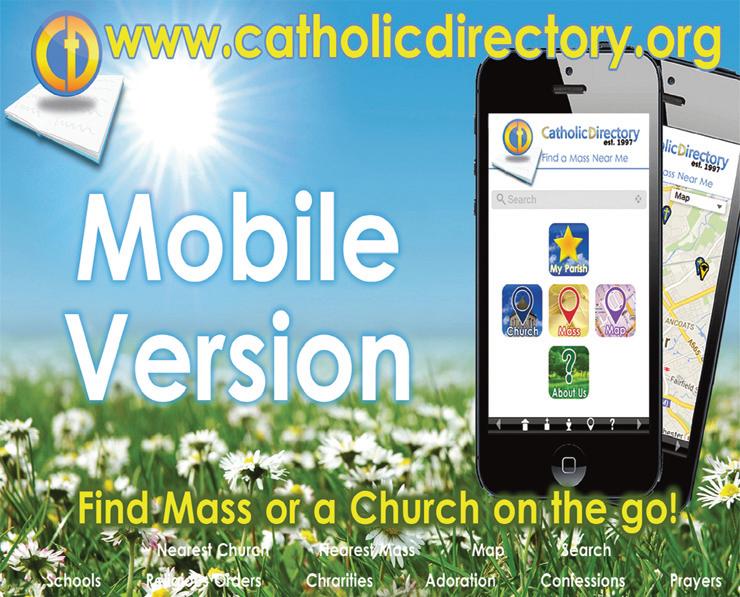

Vatican News, Caritas
Pope Francis' final wish becomes reality: a repurposed popemobile delivering vital healthcare to Gaza’s children.
This was one of Pope Francis' final wishes. He entrusted the initiative to Caritas Jerusalem, seeking to respond to the dire humanitarian crisis in Gaza, where nearly one million children have been displaced. Amid the horrific war, collapsed infrastructure, a mutilated healthcare system and lack of education, children are the first to pay the price, with starvation, infections and other preventable conditions putting their lives at risk.
Pope Francis often stated: "Children are not numbers. They are faces. Names. Stories. And each one is sacred", and with this final gift, his words have become action.
The repurposed popemobile is being outfitted with equipment for diagnosis, examination,
and treatment - including rapid tests for infections, diagnostic instruments, vaccines, suture kits, and other life-saving supplies. It will be staffed by doctors and medics, reaching children in the most isolated corners of Gaza once humanitarian access to the strip is restored.
In a press release, Peter Brune, Secretary General of Caritas Sweden, writes: "with the vehicle, we will be able to reach children who today have no access to health care - children who are injured and malnourished".
"This is a concrete, life-saving intervention at a time when the health system in Gaza has almost completely collapsed", he added.
Caritas Jerusalem, which has long served Gaza's communities under difficult conditions, is leading the on-the-ground effort. With over one hundred staff members committed to healthcare delivery, the organisation is now building on the Pope's legacy of compassion and strength whilst bringing his final blessing to the people of Gaza.
"This vehicle represents the love, care and closeness shown by His Holiness for the most

In photos released from the project, the vehicle appears to have been carefully adapted to fit the needs of those most in need.

rcsouthwark.co.uk
Daily Eucharistic adoration transformed Kent’s Catholic Chaplaincy, drawing students into deeper faith and community.
Shortly after he was ordained in 2022, Father Mark Wharton was asked to be the Catholic Chaplain at the University of Kent. When he arrived, the number of students engaged was minimal. Mass attendance was around five people, at best.
The picture looked bleak and Fr Mark said “I had no idea what to do. I was praying about it quite intensely”. In the Chapel at the university, Fr Mark said he fell to his knees and said “Lord, Lord – what am I supposed to do. You have to show me what you want because I don’t know what to do”.
In was in prayer that Fr Mark received the idea to seek out an experienced priest for advice. “I said to an older priest, a wise priest, what am I supposed to do”, Fr Mark explains, “and he said, ‘you need to do what priests do. You need to celebrate Mass, hear confessions and have adoration”.
So that’s exactly what Fr Mark started to do. Each day during term time, the Catholic Chaplaincy has Eucharistic adoration, during which confessions can be heard, and also daily Mass.
The impact has been extraordinary. When there were 5 people at Mass on Sunday, now there are 50 to 60. Weekday Mass and adoration numbers vary, but it’s typically around 20 students every day. “I have always been grateful to that priest, but I am doubly grateful to him now”, said Fr Mark.
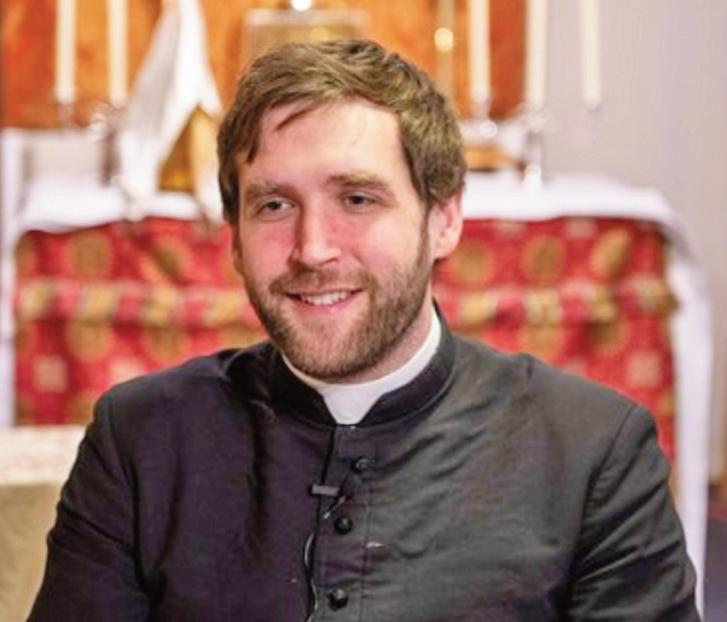
The reason this approach has worked, Fr Mark explains, is because by having Eucharistic adoration you are putting “Christ at the centre” and it is therefore “Christ who does the work”. Fr Mark adds “once we put Him at the centre it’s Him who directs it” and then any barriers to evangelisation in a secular environment “are all taken away”.
By providing daily Eucharistic adoration, the students have been able to develop their relationship with Christ. Andrew, a student at Kent, had experienced trouble with his faith in the past but he explains “I bumped into Fr Mark and the Chaplaincy and I haven’t been able to leave since”.

Andrew cites the impact adoration has had on him and his relationship with the Lord Jesus. “I didn’t really know what adoration was at all”, Andrew said, “I learned all about it here… and it’s been the most life changing aspect” of his time at university. “I love it, to be honest” he adds.
Priscilla, an international student at the university, said the Chaplaincy was her first experience of adoration. At first, she really struggled but after some advice from Fr Mark she speaks of the “benefits” of adoration. Her advice for other people like her, who don’t know where to start, is “it’s like riding a bicycle, you have to practice to get good at it. So if you really, really want to get the benefit of adoration you have to go”.

This advice is emphasised by Fr Mark, who said the key to adoration is “very simple” you have to be there because “adoration is an encounter with the longing of God for us” and if “we surrender, we discover how great it is”.
In adoration, Fr Mark explains “we look at Him and He looks at us”. Fr Mark said in the world today we often hear talk of “love languages, such as words of affirmation and gift giving”, well the love language of the Lord, he explains “is quality time”.
“Every time you read in the Scriptures about the Lord's encounter with somebody, His desire is to be with them”, Fr Mark said. In
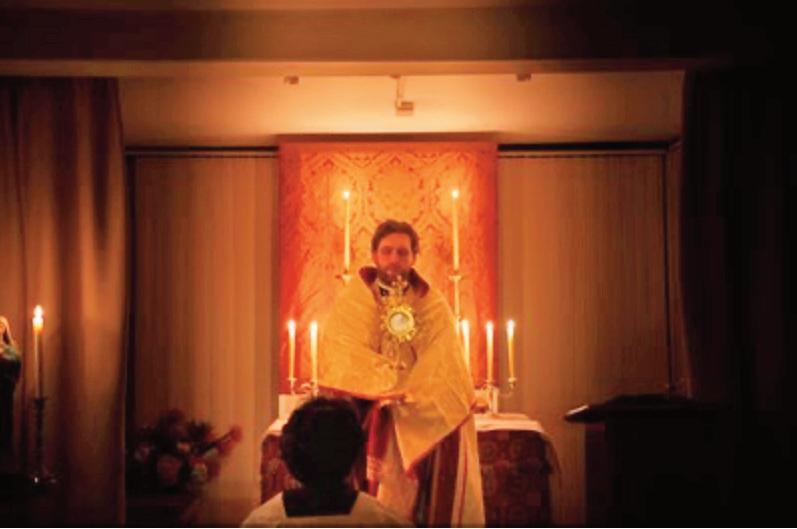
This is something student Barbara speaks about in her experience of adoration: “In adoration, I just let everything wash down. I don’t even know what’s going on around me because it’s between me and Christ. It’s just me and Him”.
Nothing else matters, Barbara said, because “everything comes from Him. So nothing else matters aside from Him”.
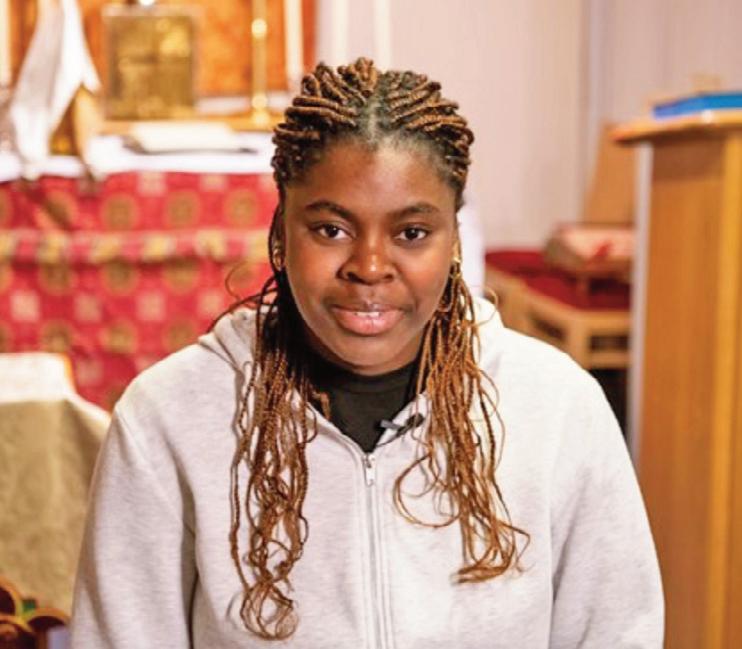
Andrew explains why adoration appeals so much to young people like him: “as young people we're so used to doomscrolling on social media. I’ve noticed that our minds are never at rest. It’s always one thing to the other. It's always TikTok, Snapchat, Instagram.
“Oh I've got to do this. I've got to do this assignment. But just being in adoration. It's only Jesus that can fill a whole big room with such peace. And it slows you right down. And that is adoration”.
Andrew’s reflection on young people today is exactly why Fr Mark offers adoration every day, as Fr Mark stated: “the reason that we have that we have adoration every single day is because I think it's essential to provide a space for the hearts of young people, young men and women seeking Christ and those who are not seeking Him to rest, to come here and to allow Him to speak”.
When someone asks him why adoration is so important, Fr Mark says “I say, look, the Lord is really present, so come and be with Him. Allow Him to convince you that He’s here and that you are intimately linked with Him. That’s what we want, and that’s what He wants”.
The students attending the Chaplaincy at Kent express their overwhelming gratitude to Fr Mark for showing them the beauty of adoration. Andrew said “Fr Mark is a big, big blessing. I would say everyone within the chaplaincy appreciates Fr Mark” and this is because, Andrew states, “he's opened us up to things like adoration, which is really, truly life changing. And I wish a load of parishes would do it more frequently. We’ve got it here daily”.
The pastoral support from Fr Mark also shines through, as Barbara explains “he's always available to be there to help you. And also the fact that he is willing to offer adoration, confession and Mass every single day. You literally have no excuse to say, ‘oh, I couldn't come’. He offers it every day”.
The ministry at the Chaplaincy at Kent is filled with hope and optimism, especially this Jubilee Year. But, Fr Mark explains, it is in the Blessed Sacrament that we find hope “because It’s Christ. And Christ says, if we follow Him, everything is possible”.
Fr Mark and the students at Kent Chaplaincy were interviewed by the Archdiocese of Southwark as part of Archbishop John Wilson’s campaign to promote Eucharistic adoration in the year of hope. You can find out more about this campaign at rcaos.org.uk/hopeinadoration
The number of young people going to church is on the increase. We review the recent survey ‘The Quiet Revival’ Pope Leo’s first month in office
